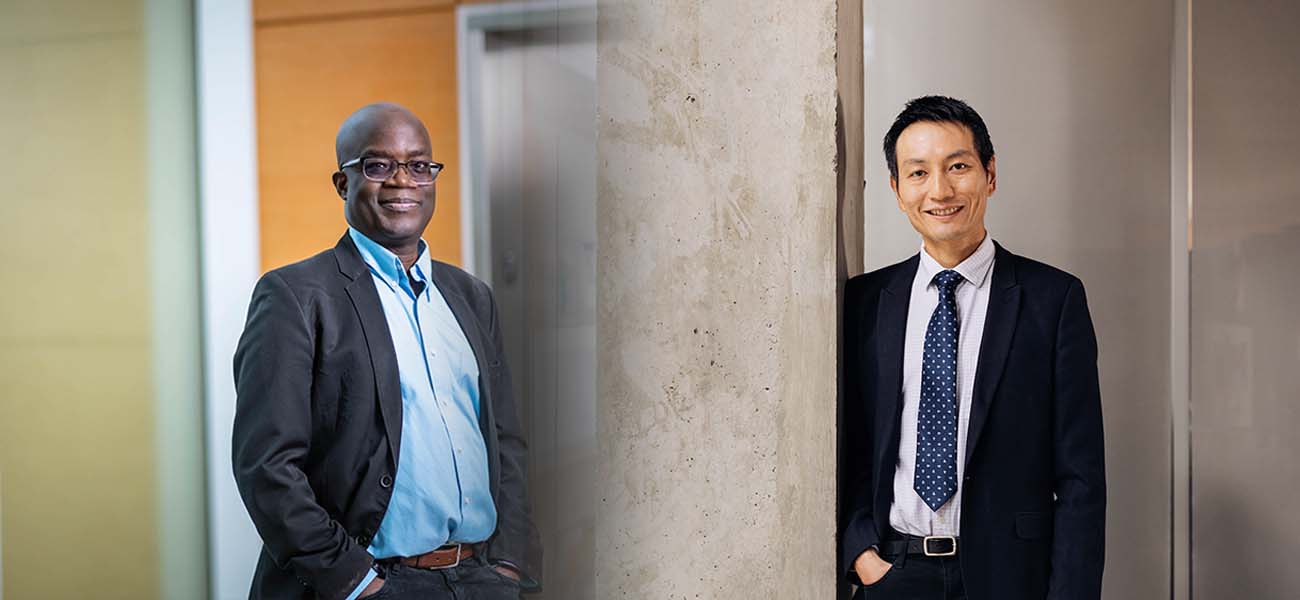
Dr. William Cheung is director and professor at UBC’s Institute for Oceans and Fisheries (IOF). Dr. Rashid Sumaila is a University Killam Professor and Canada Research Chair (Tier 1) in Interdisciplinary Ocean and Fisheries Economics at the IOF, and UBC School of Public Policy and Global Affairs. They both envision a world with healthy oceans and freshwater ecosystems, in which their resources are used sustainably and equitably. Addressing the consequences of climate change on oceans and the human societies that rely on them is no easy feat, and requires a holistic and interdisciplinary approach.
“No single discipline can understand and respond to climate change. We need to bring different people together to co-create knowledge” stresses Dr. Sumaila.
Dr. Cheung (a marine ecologist) and Dr. Sumaila (an economist) ask how we might harness the power of science and policy to build sustainable fishing practices that can mitigate and adapt to climate change challenges. They currently co-lead the “Solving the Sustainability Challenges at the Food-Climate-Biodiversity Nexus,” a six –year transdisciplinary partnership that supports and facilitates the development of food-climate-biodiversity (FCB) solutions that explicitly consider their complex social and ecological contexts. The initiative brings together world-leading scholars and practitioners from academic institutes, inter-government and non-government organizations, and government agencies to examine policies and human actions at the intersection of achieving food security, climate mitigation and biodiversity conservation goals.
With partnerships spanning across disciplines, sectors and borders, and with academics and non-academics (including Indigenous communities, NGOs, policy makers, businesses and media) collaboration is at the center of their work.
“As a researcher, we benefit more when we work with our communities. I gain new ideas, insights and questions through these engagements. This is not a one-way service; it is a two-way experience” explains Dr. Cheung.
He encourages researchers to engage with their knowledge users early in the process, to co-develop research questions that are most relevant and beneficial to them, and provide opportunities to create more pathways of research outputs utilization.
Their knowledge exchange (Kx) activities also span the spectrum of audiences — from journalists to policymakers to the general public. In addition to their active Kx efforts in traditional and social media, they frequently support global policy initiatives by sharing their work with the World Trade Organization, as well as world leaders at international engagements. Dr. Sumaila has also been featured in scientific documentaries (such as The End of the Line, a documentary about the devastating effect of overfishing) to disseminate his research to the public. When reflecting on his Kx initiatives with Dr. Cheung, Dr. Sumaila appreciates that it is “not always a cakewalk,” especially when you are sharing research findings that may not be well received by some audience. However, he asserts “we must do our best to communicate, to get our evidence out. What a waste of research it would be if we didn’t do so.”
Kx takeaways:
- Developing partnerships takes time and effort.
- Leverage connections with NGOs and civil societies—and their stakeholders —they can be a bridge to engage and collaborate with more people.
- In turn, partners benefit from the knowledge we generate and share with them.